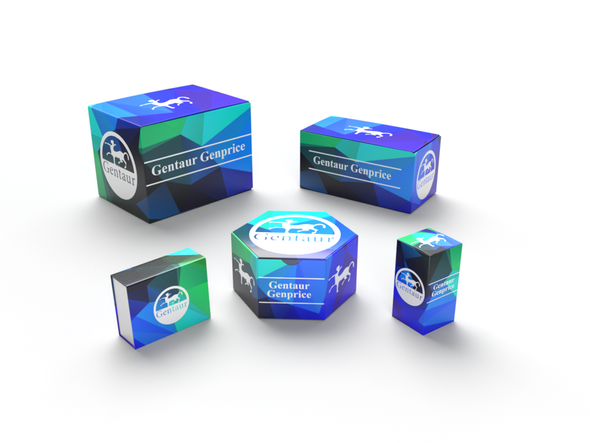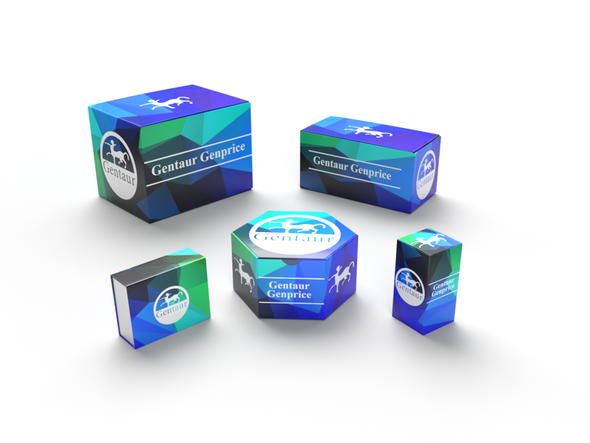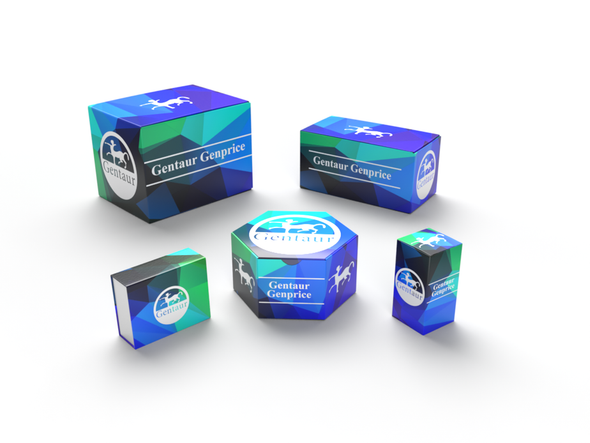Description
Rat Anti-Mouse PDGFR-beta Antibody | 103-M44 | Gentaur UK, US & Europe Distribution
Species: Anti-Mouse
Host / biotech: Rat
Comment: N/A
Label: N/A
Clone / Antibody feature: (#4C54)
Subcategory: Monoclonal Antibody
Category: Antibody
Synonyms: Pdgfrb; Pdgfr; CD140b; PDGFR-1; AI528809
Isotype: IgG2
Application: WB, IHC (P)
Detection Range: WB: 1:500-1000; IHC: 1:50-200
Species Reactivity/Cross reactivity: Mouse
Antigen: recombinant mouse PDGFR beta extracellular domain
Description: The platelet-derived growth factor (PDGF) family consists of proteins derived from four genes (PDGF-A, B, C, and D) that form disulfidelinked homodimers (PDGF-AA, BB, CC, and DD) and a heterodimer (PDGF-AB). These proteins regulate diverse cellular functions by binding to and inducing the homo- or heterodimerization of two receptors (PDGF Rα and Rβ). Whereas α/α homodimerization is induced by PDGF-AA, BB, CC, and AB, α/β heterodimerization is induced by PDGF-AB, -BB, CC, and DD, and β/β homodimerization is induced only by PDGF-BB, and DD. Both PDGF-Rα and -Rβ are members of the class III subfamily of receptor tyrosine kinases (RTK) that also includes the receptors for MCSF, SCF and Flt3-ligand. All class III RTKs are characterized by the presence of five immunoglobulin-like domains in their extracellular region and a split kinase domain in their intracellular region. Ligand-induced receptor dimerization results in autophosphorylation in trans resulting in the activation of several intracellular signaling pathways that can lead to cell proliferation, cell survival, cytoskeletal rearrangement, and cell migration. Many cell types, including fibroblasts and smooth muscle cells, express both the α and β receptors. Others have only the α receptors (oligodendrocyte progenitor cells, mesothelial cells, liver sinusoidal endothelial cells, astrocytes, platelets and megakaryocytes) or only the β receptors (myoblasts, capillary endothelial cells, pericytes, T cells, myeloid hematopoietic cells and macrophages). A soluble PDGF Rα has been detected in normal human plasma and serum as well as in the conditioned medium of the human osteosarcoma cell line MG63. Both the recombinant mouse and human soluble PDGF Rα bind PDGF with high affinity and are potent PDGF antagonists.
Purity Confirmation: N/A
Endotoxin: N/A
Formulation: lyophilized
Storage Handling Stability: Lyophilized samples are stable for 2 years from date of receipt when stored at -20°C. Reconstituted antibody can be aliquoted and stored frozen at < -20°C for at least six months without detectable loss of activity.
Reconstituation: Centrifuge vial prior to opening. Reconstitute the antibody with 500 µl sterile PBS and the final concentration is 200 µg/ml.
Molecular Weight: N/A
Lenght (aa): N/A
Protein Sequence: N/A
NCBI Gene ID: 18596






